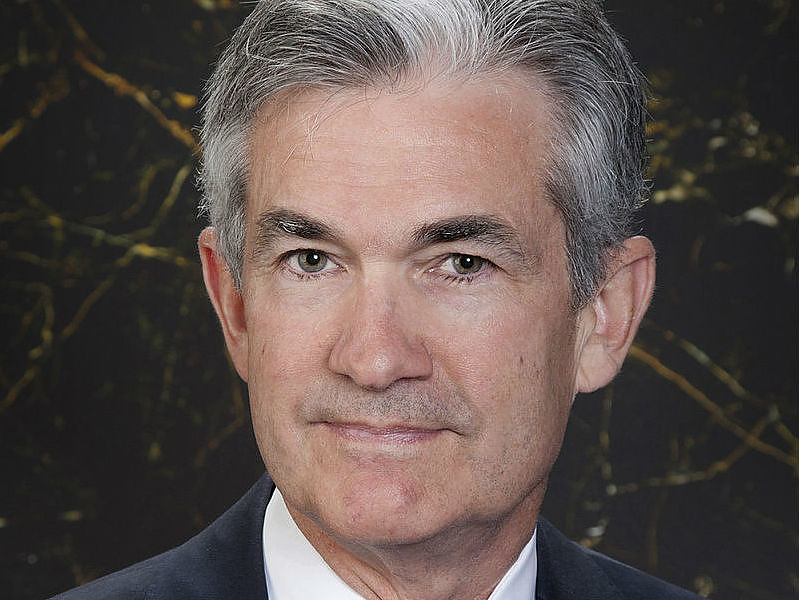Fed Rundown: Lower for (even) longer, and what's next for the dollar after the whipsaw

Jerome Powell, Chairman of the Federal Reserve, announced a paradigm shift in how the Fed approaches inflation. The dollar tanked and recovered. Joseph Trevisani and Yohay Elam run down the historic event for policy, yet one that cannot lift inflation on its own. Markets may eventually respond, but that may take time.
Yohay Elam: Jerome Powell, Chairman of the Federal Reserve, announced a new policy framework. The Fed will now allow inflation to overshoot and prioritize employment over price rises. That is a dovish shift. Stocks and gold initially rose and the dollar dropped, but then everything turned upside down. Have we seen a "buy the rumor, sell the fact"?
Joseph Trevisani: I don't think it is much of a shift at all. How is averaging different from symmetric? In order to produce a 2% rate they mandate the same over and under. The Fed's problem is not the goal, it is achieving the goal and on that, there is little change.
Yohay Elam: Indeed, allowing for an overshoot when the Fed is failing to reach 2% is not so meaningful, but there is a difference between symmetrical and average
Joseph Trevisani: Indeed
Yohay Elam: Allowing catch up inflation, when it arrives one day...
Joseph Trevisani: If inflation is to 'symmetric' around 2% and it has been under 2% for years, doesn't that mean it must be above 2% for enough time to make it symmetrical at 2%. I don't mean to quibble but the Fed is doing what it has done for more than 10 years paying rhetorical attention inflation. I think the main point is the policy prescription for employment and low inflation is identical. Low-interest rates.
Yohay Elam: In the next two years, rates are set to remain low in any case, so I agree it does not matter too much
Joseph Trevisani: The issue is that inflation is not responding. In 2018 core PCE was 1.96% but not because of rates and liquidity but because of demand
Yohay Elam: If the Fed had a current policy in 2018, it would not raise rates four times, at least not that final hike that triggered a market sell-off. But markets are less interested in counterfactuals of past monetary policy but rather in the future
Joseph Trevisani: Perhaps but the rate increases were predicated on returning policy to normal after seven years at 0.25%.
Yohay Elam: Yes and lower rates for longer, is not much different than lower rates for even longer. And indeed, the announcement is an extension of forward guidance. After the whipsaw, can we expect the dollar to fall on prospects for looser policy? Or return to focusing on other topics? I would expect a bit of weakness before the focus shifts back to the economy, with Non-Farm Payrolls standing out
Joseph Trevisani: I think the policy review was important internally. Powell mentioned early in his presentation the economic changes that are now incorporated into official Fed consideration. And I agree, but the assumption has to be lower but I think markets will pay more attention to economic data than rates. Still, that was a great trading move today.
Yohay Elam: Indeed, tensions built up during the week exploded, breaking the summer lull. Does today's speech take the sting out of September's FOMC meeting? I don't expect any meaningful change in the dot-plot, but the Fed could still respond to incoming data
Joseph Trevisani: The economic projections will still be meaningful, particularly any changes, but on policy, no.
Yohay Elam: Right, with all the attention on interest rates, pre-pandemic, the economic forecasts were forgotten. Now they are back in vogue
Joseph Trevisani: The Fed's adoption of inflation averaging reminds be of old traders saying that averaging a losing position is the quickest way to go broke. The long=term decline in inflation is being driven by factors beyond the control of monetary policy.
Yohay Elam: Indeed, globalization, de-unionization, Amazon-fiction, and a long list of factors
Joseph Trevisani: Exactly. The globalization of everything. Especially production and consumption. Markets are slowly returning to the economic comparison. The dollar decline over the past month was based on the feared economic impact of the COVID second wave.
Yohay Elam: Do you think other central banks will the Fed's lead? I can't see the Germans agreeing to high inflation...
Joseph Trevisani: In inflation averaging?
Yohay Elam: Allowing for a temporary overshoot in an official policy document
Joseph Trevisani: No, I don't think so. I agree that I can't see the Bundesbank endorsing inflation
Yohay Elam: With zero rates and weak inflation, such policy shifts seem like academic theorizing. They may become relevant in a couple of years, but markets are not looking that long
Joseph Trevisani: You are right, the policy shift does give official permission for higher inflation, but at the moment it is not important since the Fed does not have the means to raise inflation without cooperation from the rest of the economy.
Yohay Elam: Playing the devil's advocate, if everybody – including the Fed – dismisses inflation, perhaps it may eventually sneak higher while we are all dismissing it?
Joseph Trevisani: I think the Fed would be very happy with that but the fundamentals are against it
Yohay Elam: Indeed, inflation is impossible to find
Joseph Trevisani: It's an interesting historical problem. And again, I think that was an important part of the Fed's review. It has incorporated those economic changes into its official considerations.
Yohay Elam: Indeed, and could make a difference down the line, but not this year
Premium
You have reached your limit of 3 free articles for this month.
Start your subscription and get access to all our original articles.
Author

FXStreet Team
FXStreet

















